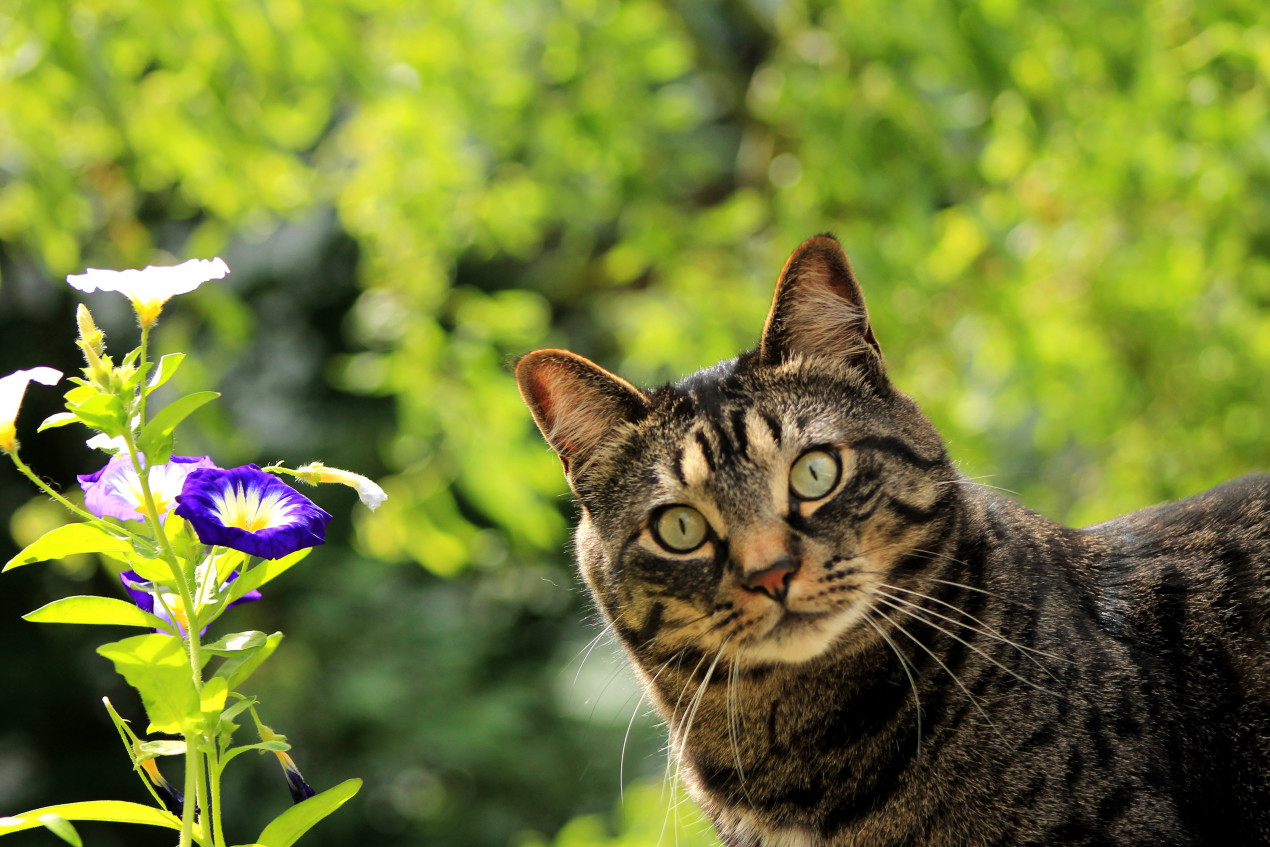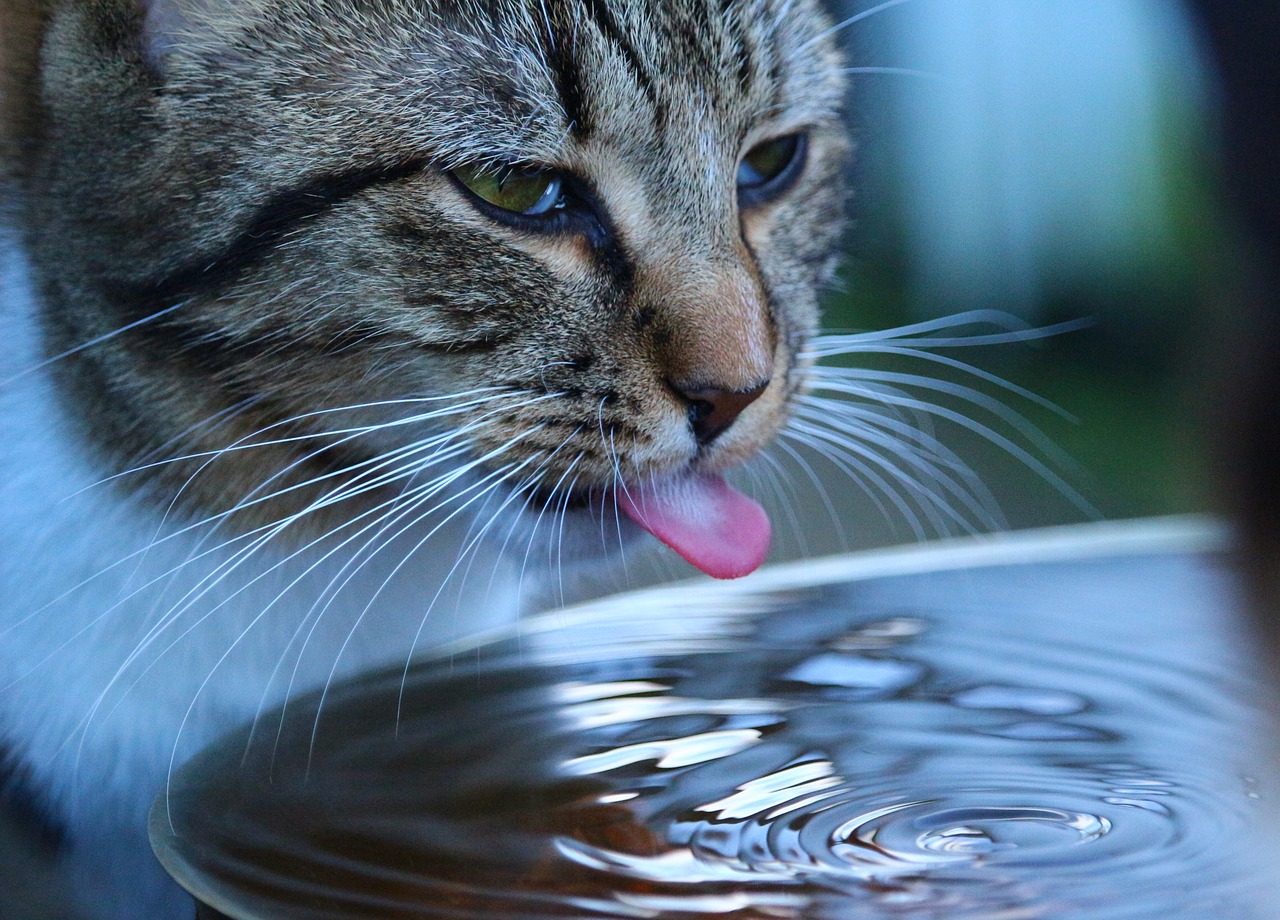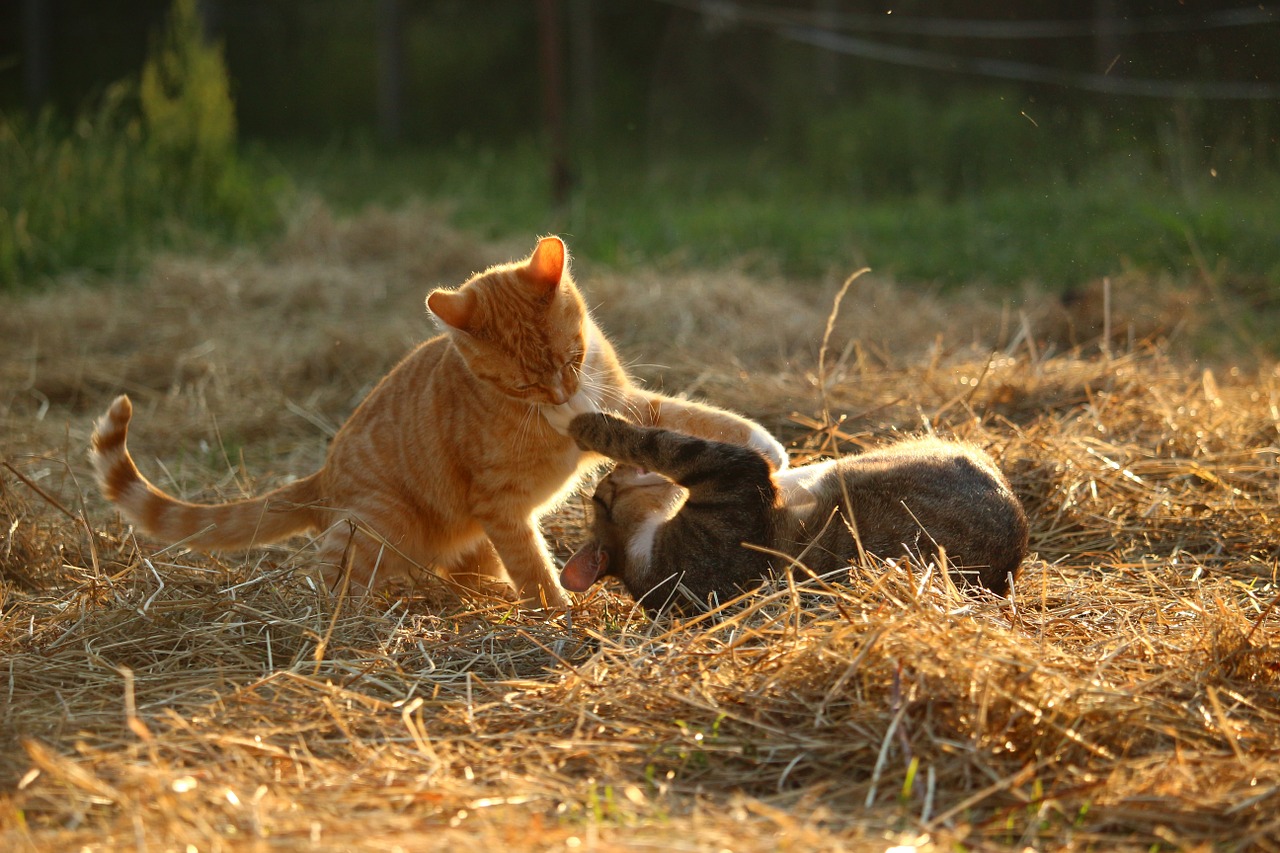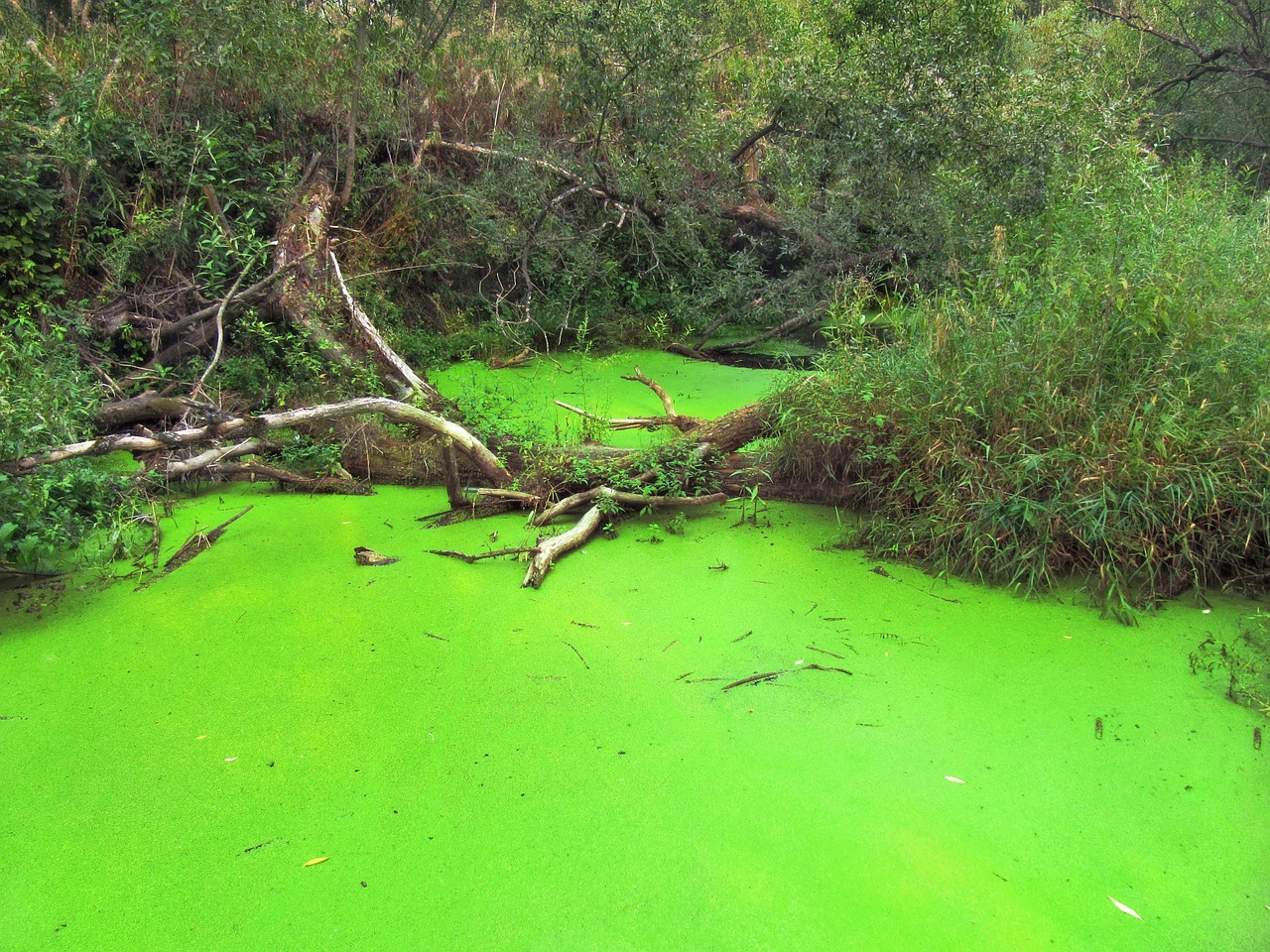Do you need help?

What are the biggest hazards for cats over summer?
During the summer months, outdoor cats tend to spend longer outside. Unfortunately, however, this has its downsides. As emergency vets, we see considerably more cases of cats being injured as a result of cat fights, dog bites and road traffic accidents.
Here is a list of some of the most common – and not so common – reasons cats are admitted to our clinics and hospitals over the summer.
1. Road traffic accidents
Sadly, this is one of the most common reasons cats are admitted to our pet emergency clinics and hospitals. There are pros and cons to allowing your cat outdoors but if you choose to let them out there are lots of ways to help ensure they come home safe and well. These include neutering, keeping them indoors at night and using a ‘quick release’ reflective collar.
2. Hot spots
Cats love sunbathing but will often choose an inappropriate spot. Try to ensure your cat does not get locked in a greenhouse, conservatory or car by accident. Never leave a cat in its carrying basket in a car, even with a window open. Heat stroke kills rapidly. The signs are obvious – your cat will be restless, pant excessively and drool. If your cat is not treated quickly he will collapse and fall into a coma. If you suspect your cat is suffering from heat stroke, lower its temperature by bathing it in cool – not cold – water and seek veterinary attention immediately. Heat stroke is an emergency.
3. Sun burn
During the summer months it’s not uncommon for light-coloured cats, in particular, to suffer from sunburn. This can lead to cancer of the nose and ear. Animal safe sunscreens are available and it’s worth applying some to your cat’s ears and nose.
More cat health advice

Where's my nearest pet emergency clinic?
4. Fish hooks
Fishing is massively popular in the summer and we occasionally see cats who have either swallowed a fish hook or stepped on one. If your cat has done either do not pull on the line. Instead, tie it to your pet’s collar or keep hold of the end to prevent them swallowing the whole lot and contact your vet straight away.
5. Insecticide poisoning
Permethrin is an insecticide commonly found in over the counter ‘spot-on’ flea treatments for dogs. It’s very toxic to cats and unfortunately at Vets Now we see numerous cases every month. Poisonings happen all year round, but there is a peak in late summer as this is when flea numbers are at their highest. Cats who receive immediate treatment typically survive and usually suffer no long-term effects.
6. Fleas and ticks
Parasites such as fleas and ticks are more prevalent in the warmer months. Regular treatment should keep things under control. Just remember to check your cat’s fur frequently for any signs of fleas or flea dirt. If you are struggling to keep parasites under control make sure you have treated your cat’s bedding and the house. It’s also worth speaking to your daytime vet about the best products to use.
Young kittens can become severely anaemic with a heavy flea infestation which can be a life-threatening emergency. If you see multiple fleas on a small kitten or they become pale or lethargic, contact your vet immediately.

7. Insect stings
Insect stings are another potential summer hazard for cats, particularly for those who can’t resist trying to make friends with bees flying from flower to flower. If your cat is stung in the mouth or throat the airway may swell and restrict breathing. Some cats may also be allergic to bee and wasp stings. If you think your cat has been stung, contact your vet for advice.
8. Adder bites
Snake bites are rarely seen in cats, but occasionally they will inadvertently disturb adders hidden in long grass. Bites can result in swelling, pain, vomiting, diarrhoea, incoordination and collapse. If you’re worried your cat has been bitten by a snake seek veterinary help immediately.
9. Poisoning from engine coolant
Engine coolant and antifreeze typically contain a chemical called ethylene glycol, which is highly toxic to cats. If you think your cat may have been poisoned by ethylene glycol contact your vet immediately and give them as much information as you can. The good news is most modern cars now have a sealed coolant system so cases of ethylene glycol poisoning should hopefully start declining.

Read our in-depth guide on heat stroke in cats
10. Water safety
Some cats prefer to drink outside, so if you have a pond it’s worth checking it does not become stagnant or develop algae as this can cause serious illness in pets. Also, make sure it has an escape route should your cat fall in.
11. Toad toxicity
Very occasionally, our vets see cases of exposure to toads. Toads are most active at dawn and dusk in the summer months, and most toad-related incidents occur in the evening when cats lick them. The onset of signs of poisoning is rapid, and you can see drooling, frothing, foaming, pain around the mouth, vomiting, wobbliness, seizures and collapse in severe cases.
12. Dehydration
Ensure your cat always has fresh water available. While dehydration in cats is rare, it can happen. And just like us, cats need to drink regularly to avoid it. This is especially the case during warm weather, particularly if your cat inadvertently gets shut in somewhere without fresh water supply for a period of time.
13. Bites from fights
This is another one of the biggest reasons for cat emergency admissions during summer. If your cat is bitten by a dog, or another cat, get it checked out by your vet straight away as the possibility of infection is high.
